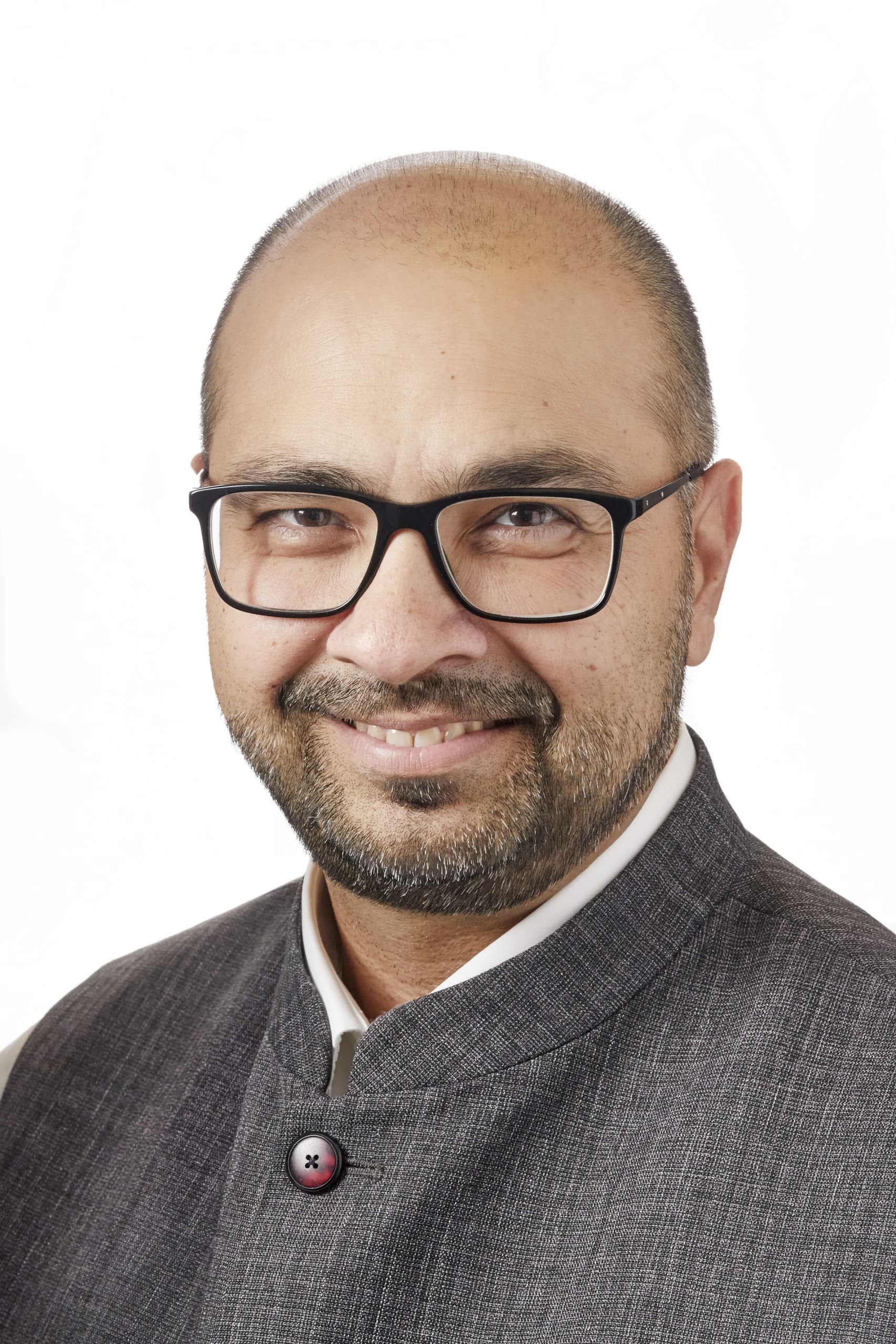Aly speaking with one of Operation Eyesight’s beneficiaries in Kenya. The man had just received cataract surgery at the new eye unit at Kerugoya County Referral Hospital, Operation Eyesight’s partner hospital in Kirinyaga County.
Interview with Aly Bandali, President & CEO, Operation Eyesight Universal
CCIC: Congratulations on being recognized by Charity Intelligence as one of the Top 10 Impact Charities of 2018. What do you think earned Operation Eyesight Universal that recognition?
Aly Bandali: I believe we received this recognition because we leave a lasting impact in the communities we serve. Over a decade ago, Operation Eyesight made the decision to move from an aid agency to a development agency. That was the catalyst, because then the focus of the organization shifted from giving a hand out to giving a hand up. With this mentality, we developed our Hospital-Based Community Eye Health model, which focuses on empowering local communities to take ownership of the issue of avoidable blindness.
Operation Eyesight taps into local resources rather than sending human resources from Canada, which helps us leverage our buying power and gain an economy of scale when we’re working internationally. It’s also empowering for communities to know that there are fellow community members helping other community members – local Kenyans helping Kenyans, for example. This helps us leverage donations and maximize our impact in many ways.
CCIC: Operation Eyesight Universal applies a unique model of Hospital-Based Community Eye Health. What do you think are some of the lessons you have learnt from applying this model that other organizations might be able to learn from?
AB: Operation Eyesight has always maintained a firm commitment to sustainability and quality, and the development of our model based on these two factors gives us the ability to focus on leaving communities versus staying in them. Empowering communities to develop their own health-seeking behaviour is a way for us to work ourselves out of a community, rather than be known for being in that community on a long-term, dependent basis. Ultimately, our goal is to work ourselves out of business!
Our model shares the focus between supply and demand. Most NGOs tend to focus on supply, building capacity in the community when it comes to hospitals, equipment and training. But unless the community is empowered and creates their own demand, there’s no sustainability in that. Other organizations can learn from our model, linking supply to the communities themselves, so they can own it and be part of the development, and building the trust as you link the two together.
Another part of our model that others can learn from is the focus on leveraging research done by others in the past. For example, focusing especially on women as community health workers has a significant impact on building communities, developing trust and sustaining relationships with our partner hospitals. In the countries we work, women and girls are typically underserved because of cultural biases towards men and boys. By giving women the opportunity to become community health workers, we provide them with opportunities to contribute to the economic growth and social activity of their families and communities. We also ensure women and girls are given the same level of access to eye care services and the same quality treatment as men and boys. When a girl can see to go to school, it’s going to have a generational impact on her ability and her family’s ability to be productive, educated and socially engaged.
CCIC: What goals and milestones are you particularly looking forward to working towards in the coming year(s)?
AB: Having a list of countries where we are no longer needed, and ultimately working ourselves out of a job.
CCIC: Operation Eyesight Universal is new to the CCIC community, welcome! Why did you become a CCIC member?
AB: Your president and CEO, Nicolas Moyer, paid me a visit and told me about the refocus of the organization, the new strategic direction CCIC is headed in, and the role you play in facilitating connectivity and networking. This appealed to us because it gives us an avenue for building as well as being part of the international development community here in Canada. We look forward to having a peer network and leveraging CCIC’s expertise to develop key relationships. We’re working on the international stage, but because we’ve been based in Calgary for 56 years, we’re a bit isolated from the main centres like Ottawa and Toronto. Being a member of CCIC gives us the ability to connect with like-minded organizations nationally.

Aly Bandali
President & CEO, Operation Eyesight Universal
Aly Bandali is the President and CEO of Operation Eyesight Universal, a Calgary-based international development organization that works to prevent blindness and restore sight in developing countries around the world.
Aly has enjoyed a 25-year career in human resources and leadership in Calgary in non-profit, technology, and oil and gas. His speciality areas include leadership development, talent management and human resource business strategy. He has been described as a leader who is business-focused, entrepreneurial, results-oriented, innovative, professional and passionate about making a difference.
Aly holds a Bachelor of Commerce degree from the University of Alberta. He has served in a number of volunteer leadership roles in the HR community in Alberta and nationally. He was awarded the Fellow Chartered Professional in Human Resources Designation in 2016 by CPHR AB (Chartered Professionals in Human Resources Alberta) for exceptional service, impact on the HR profession and HR career.
As a father of two wonderful children, Zaman and Ayesha, and husband to Farah, Aly places high value on strong family and community connections. He values honesty, integrity, and giving back to the community.
